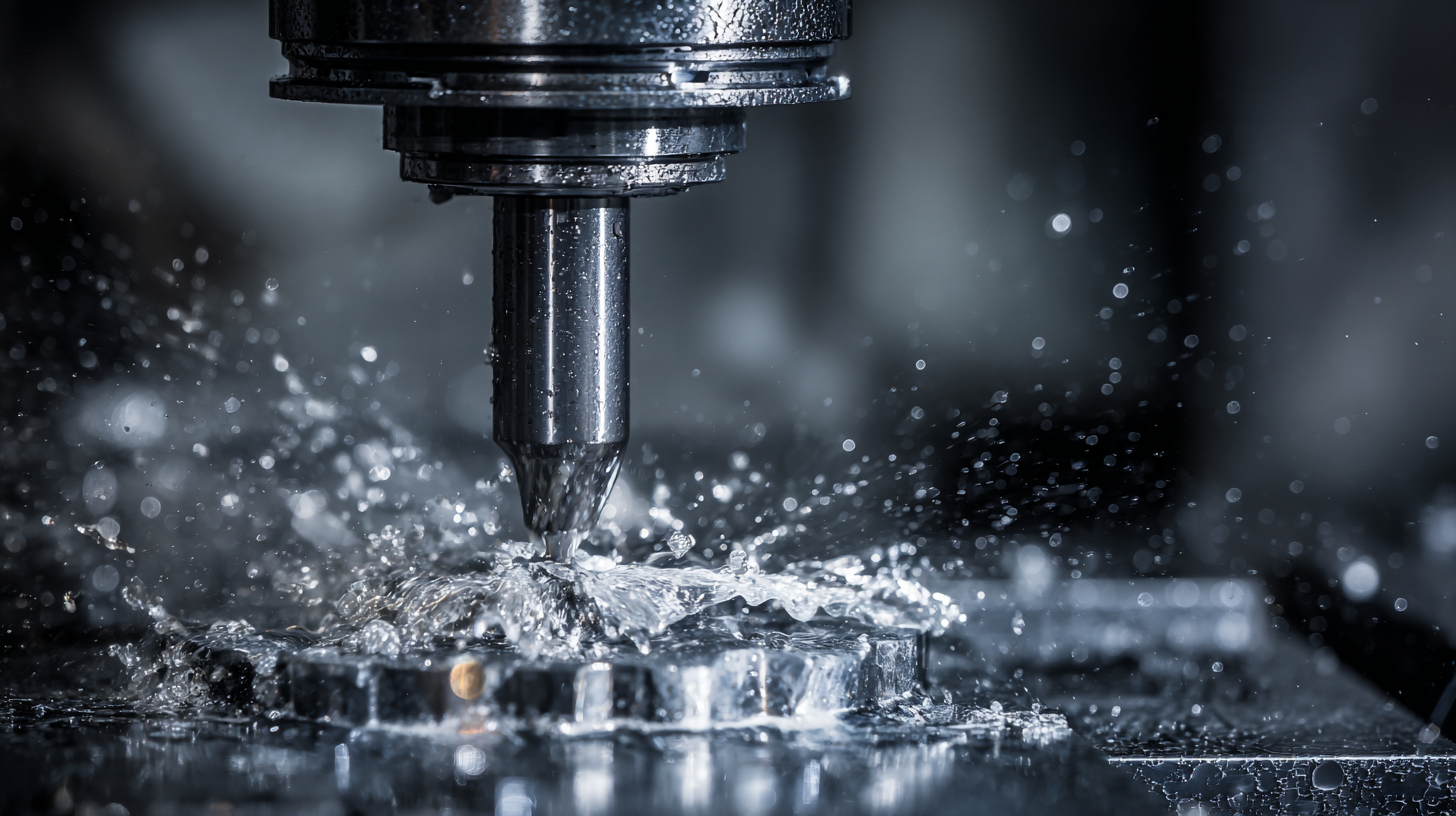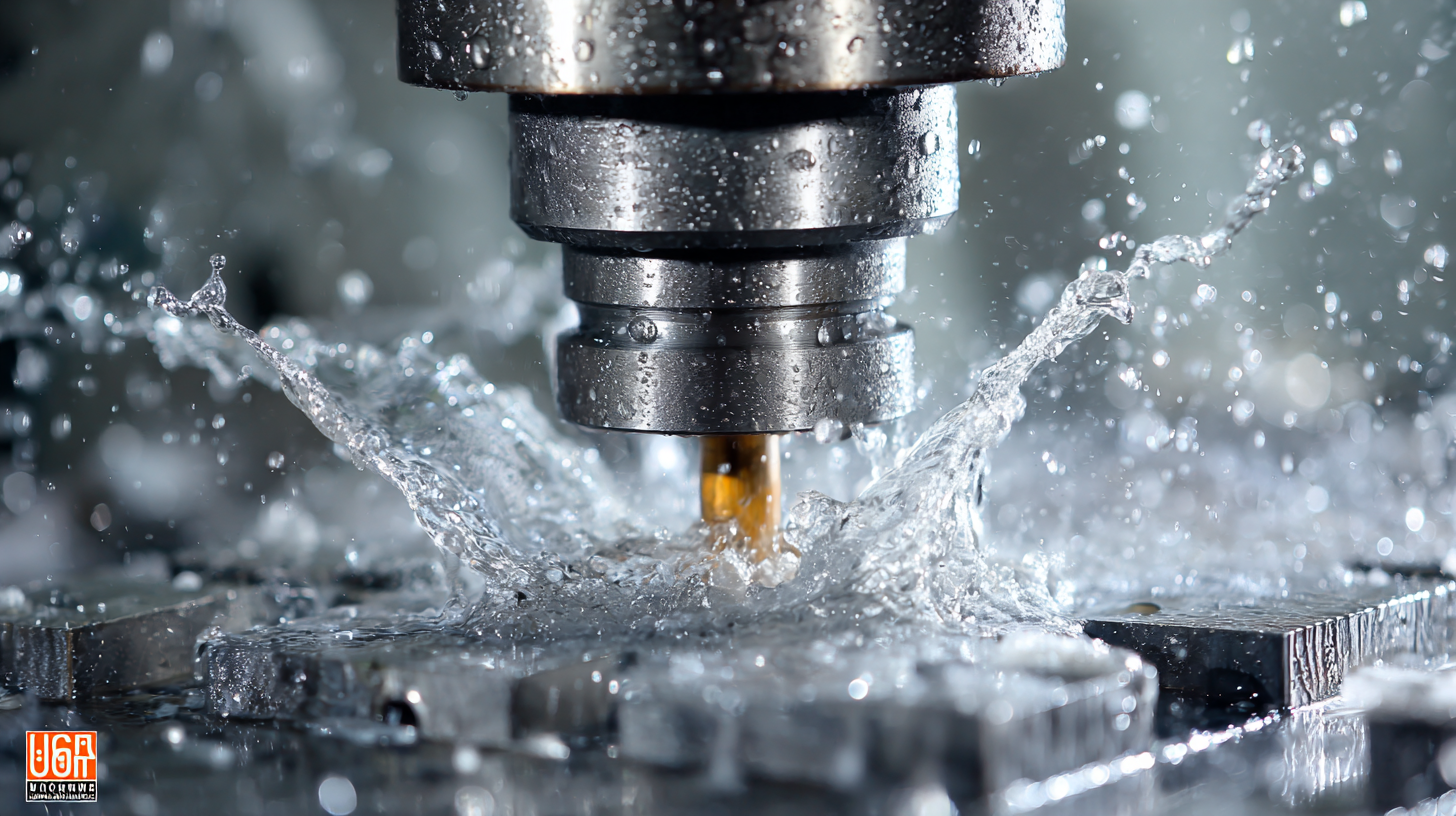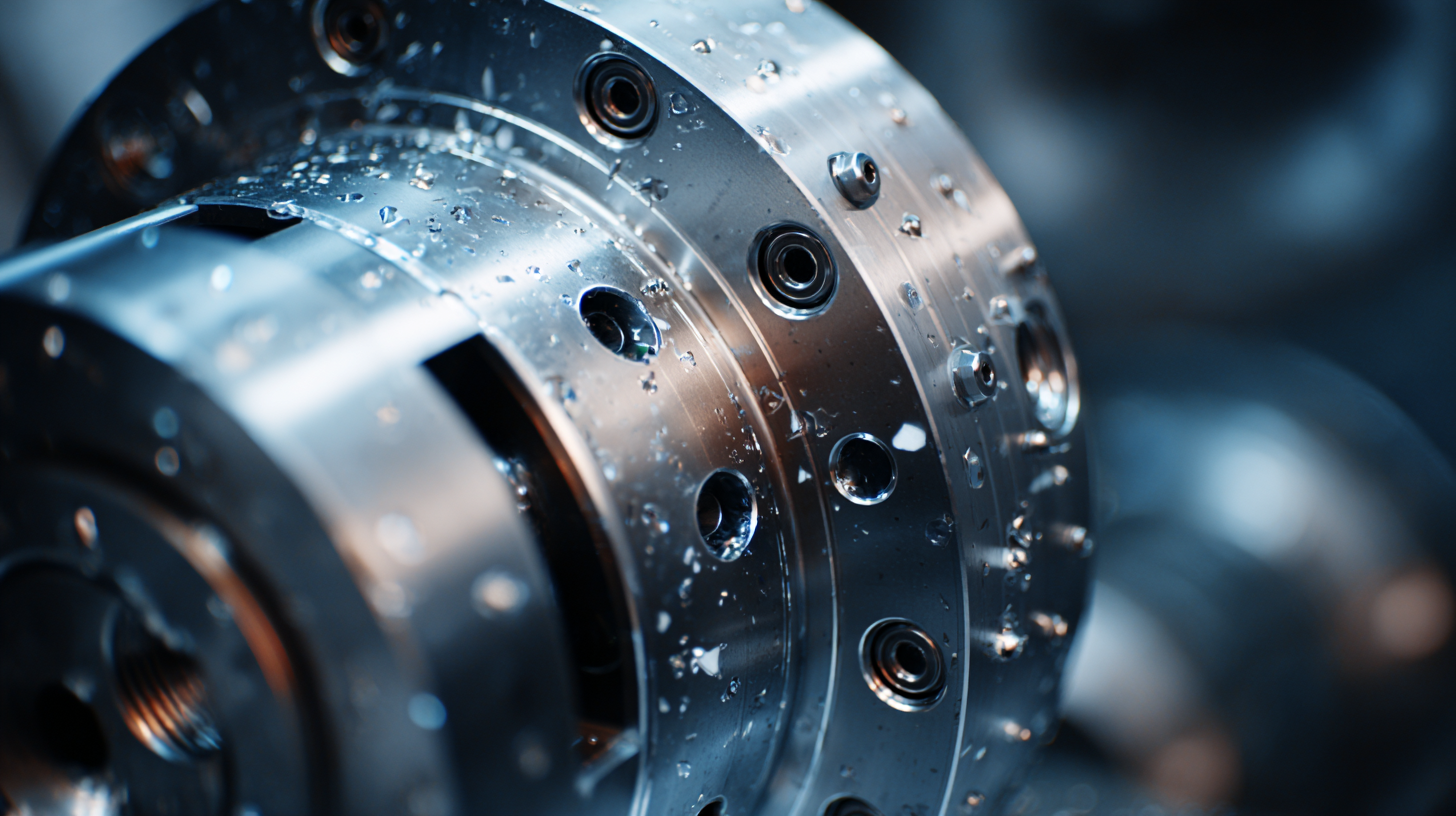Maximizing Value: How Exceptional After-Sales Service and Low Repair Costs in Best Rapid CNC Machining Set You Apart
In today's highly competitive manufacturing landscape, the significance of exceptional after-sales service and low repair costs in rapid CNC machining cannot be overstated. According to a report by Technavio, the global CNC machine market is projected to grow by over $7 billion from 2021 to 2025, driven by advancements in technology and increasing demand for precision manufacturing. Companies that leverage outstanding after-sales support not only enhance customer satisfaction but also bolster their brand loyalty—essential components in a market where 70% of consumers are willing to pay more for better customer experiences, as noted by a recent PwC study. By focusing on value maximization through superior service and cost-effective repairs, manufacturers in rapid CNC machining can distinguish themselves, ensuring long-term success and sustainability in a rapidly evolving industry.

Exceptional After-Sales Service: Elevating Customer Satisfaction in CNC Machining
Exceptional after-sales service is a critical component in the CNC machining industry, significantly influencing customer satisfaction and loyalty. A recent report indicates that businesses that prioritize customer support post-purchase can see a retention rate increase of up to 80%. This is particularly relevant in sectors like CNC machining, where the complexities of machinery demand ongoing technical support and maintenance.

To elevate your after-sales service, consider implementing a dedicated customer support team and utilizing advanced tracking systems to monitor service requests and responses. Regular follow-ups with customers post-sale can also provide valuable feedback, enhancing your service quality. Companies that have adopted such measures reported a 20% improvement in customer satisfaction ratings, underscoring the impact of proactive engagement.
Another key aspect to consider is managing repair costs effectively. Lower repair costs combined with exceptional service create a competitive edge. Data shows that companies with transparent pricing structures and quick turnaround times for repairs are preferred by customers, leading to increased referrals and repeated business. To maximize value, invest in employee training for skilled service delivery, as this not only reduces error rates but also builds trust with your clientele.
Understanding Key Technical Parameters for Rapid CNC Machining Products
In the competitive landscape of rapid CNC machining, understanding key technical parameters is essential for delivering high-quality products. Parameters such as
tolerance, surface finish, and material selection directly influence the performance and durability of machined components. For instance,
tight tolerance specifications are crucial in industries such as aerospace and medical devices, where precision is paramount. By mastering these technical details,
manufacturers can ensure that their products not only meet industry standards but also exceed customer expectations.
Furthermore, the choice of material plays a critical role in determining the suitability of a CNC machined part for specific applications. Different materials offer varying
strengths, weights, and resistance to chemicals, which must align with the intended use of the product. Additionally, understanding machining speeds and feed rates can optimize the production process,
leading to improved efficiency and reduced costs. By focusing on these technical parameters, companies can innovate in their offerings while also maximizing the value provided to clients through
superior after-sales service and efficient repair processes.
Low Repair Costs: A Competitive Edge in the CNC Machining Industry
In the competitive landscape of CNC machining, low repair costs can be a significant differentiator for businesses looking to establish a loyal customer base. Exceptional after-sales service paired with reduced repair expenses not only boosts customer satisfaction but also enhances the overall value proposition of your offerings. When clients perceive your services as reliable and economical, they are more likely to choose your company over competitors.
**Tip 1:** Implement proactive maintenance plans that can help identify potential issues before they escalate into costly repairs. By educating your clients on routine upkeep, you demonstrate care for their investments, fostering trust and long-term partnerships.
**Tip 2:** Streamline your supply chain for spare parts to ensure quick and cost-effective repairs. Having readily available components reduces downtime for your clients, allowing them to maintain operational efficiency and confidence in your services.
Lowering repair costs through strategic practices not only keeps your customers happy but can also result in lower operational costs for your business. Investing in quality components and skilled technicians will further refine your repair process, ensuring you remain competitive in the ever-evolving CNC machining industry.
| Dimension | Description | Metric | Industry Average | Best Performer |
|---|---|---|---|---|
| Response Time | Time taken to respond to customer inquiries | Hours | 24 | 6 |
| Repair Turnaround | Average time taken to repair CNC machines | Days | 14 | 3 |
| Customer Satisfaction | Overall satisfaction with after-sales support | Rating (out of 10) | 7.5 | 9.8 |
| Repair Cost | Average cost for repairs after warranty | USD | 500 | 150 |
| Repeat Business Rate | Percentage of customers returning for more business | Percentage | 30% | 70% |
How to Maximize Value Through Personalized Customer Support Strategies
In today’s competitive landscape, exceptional customer support is essential for companies in the CNC machining industry to differentiate themselves. A recent industry report by the National Association of Manufacturers indicates that 70% of customers consider post-sale service as a critical factor in their purchasing decisions. This emphasizes the necessity of personalized customer support strategies that resonate with individual client needs, enhancing overall satisfaction and loyalty.
Investing in tailored customer support not only boosts retention rates but also fosters long-term relationships that can drive referrals and repeat business. According to a study by Salesforce, 89% of consumers are more likely to make another purchase after a positive customer service experience. By integrating proactive communication, such as follow-up calls and personalized maintenance tips, CNC machining companies can effectively minimize repair costs and maximize the perceived value of their offerings. This level of engagement can lead to a significant increase in customer lifetime value, positioning businesses to gain a sustainable competitive advantage in the machining sector.
Best Practices for Implementing Efficient After-Sales Solutions in CNC Machining
Exceptional after-sales service and low repair costs are crucial in setting CNC machining companies apart in a competitive market. As the global CNC machine market is projected to grow significantly, companies must prioritize efficient after-sales solutions to retain customer loyalty and enhance overall satisfaction. Implementing best practices in after-sales service can lead to long-term relationships with clients, ensuring repeat business and positive referrals.

Tips for Implementing Efficient After-Sales Solutions:
- Establish a Dedicated Support Team: Having a specialized team to handle customer inquiries and issues can improve response times and service quality. Consider offering various channels for assistance, including phone, email, and live chat, to cater to customer preferences.
- Regular Maintenance Programs: Offering scheduled maintenance services not only extends the lifespan of CNC machines but also helps in identifying potential issues before they escalate. This proactive approach can significantly reduce unexpected repair costs and downtime for clients.
- Gather Customer Feedback: Regularly solicit feedback from customers about their after-sales experience. This information can be invaluable for identifying areas for improvement and ensuring that your service meets evolving customer expectations. By implementing changes based on feedback, you demonstrate commitment to customer satisfaction.
By focusing on these strategies, CNC machining businesses can maximize value and stand out in a rapidly growing industry.